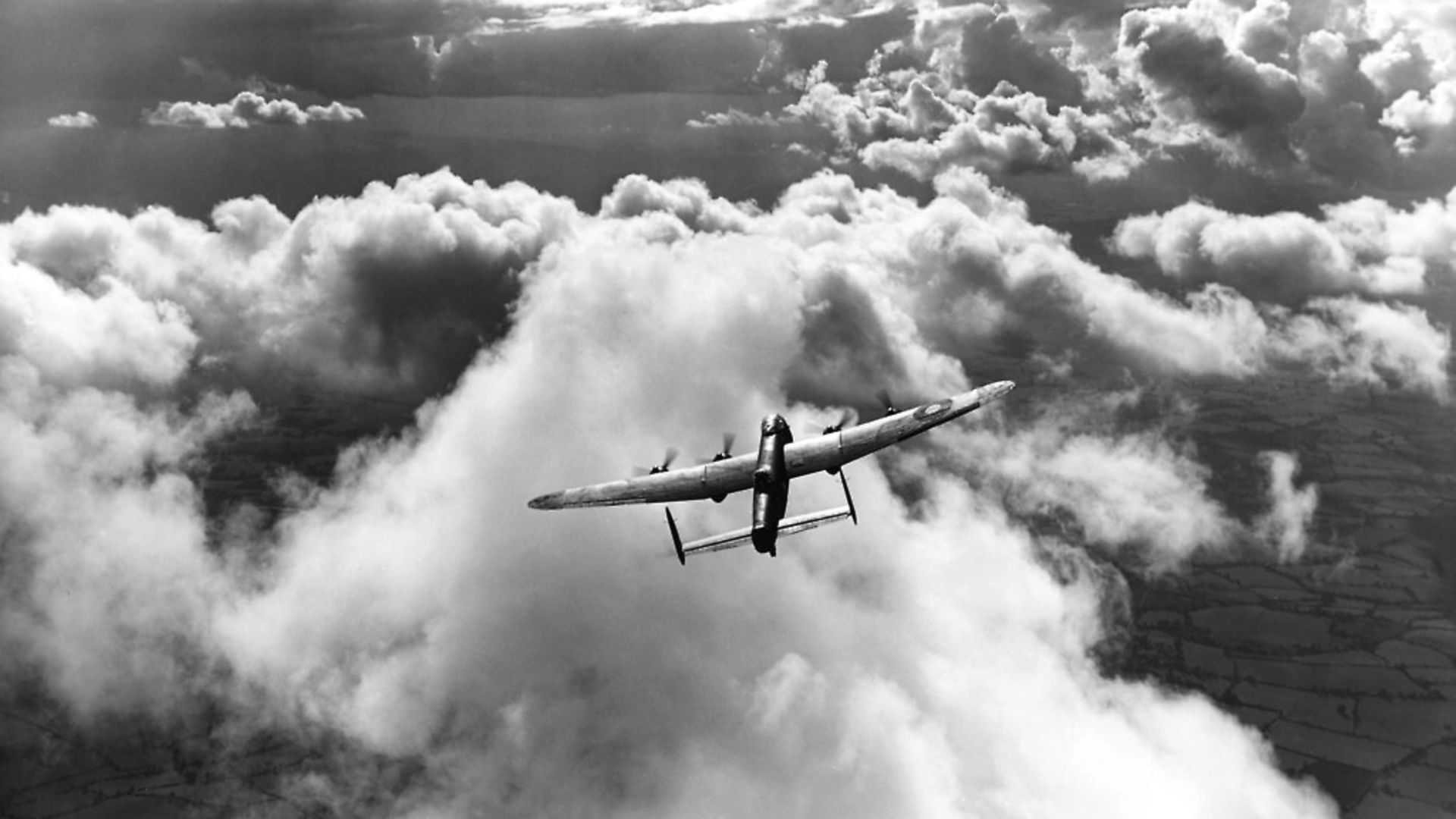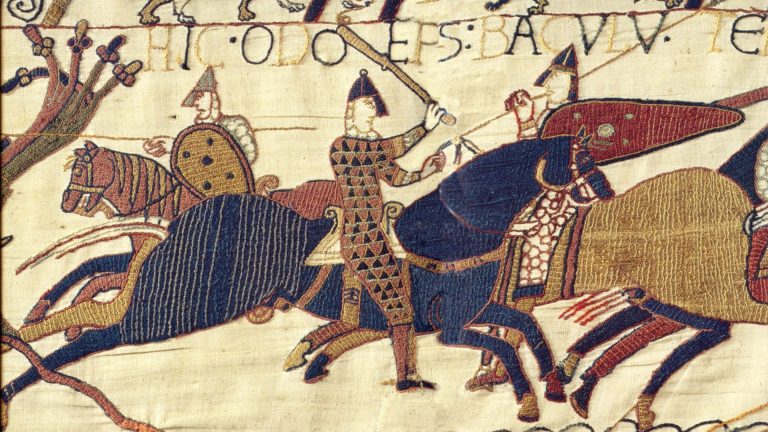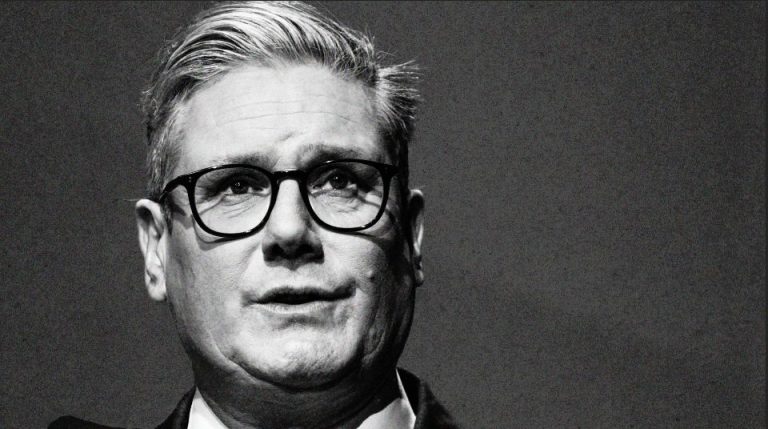
Two decades after his father’s death, KEITH BLACKMORE attempted to piece together his wartime RAF career. The resulting story is at once deeply personal and utterly universal.
My father would have been 100 this October. When he died, 21 years ago now, I was working at the Times. A considerate colleague from the obits department asked me kindly if I thought my father deserved an obituary. I declined. Don’t ask me why. Embarrassment? Confusion? Diffidence? Distress? I have no satisfactory answer.
I’ve cursed myself ever since – not just because as the years have passed plenty of lesser lives have been celebrated in those pages; or because it would have made him proud, had he somehow been aware of it; nor because our grieving family would have taken some comfort in it. No, because he deserved the small honour that a place in The Thunderer’s pages accords, and was denied it by his son’s foolish modesty on his behalf.
So here is how that obituary might have begun: Donald McKenzie Blackmore was born in London on October 21, 1919, but raised in Bath, and a Somerset drawl would occasionally surface at moments of excitement for the Somerset county cricket team and almost always when, in later years, he returned to the West Country.
His father, Alfred, was a stage manager in London’s West End and his mother, Edith, an actress. Alfred abandoned Edith when Donald was tiny, leaving her to cope with two children and no certain means of earning a living. She then took what must have been a hard decision for her but an even harder one for Donald, then aged five. She sent him by boat to Canada to live with distant relations of his estranged father. His younger brother remained in Bath, with her. Donald did not come home, or see his mother and brother again, for seven years.
By then, she had married a cousin, Benjamin, who was a master butcher for the Co-Op in Bath. At 14, Donald reluctantly left the school he had only barely joined to work for Benjamin and learn the butcher’s trade. The reconstructed family needed the money. But as soon as he could, at the end of 1937 or early 1938 and against some family resistance, Donald joined the Royal Air Force.
His stepfather, no doubt influenced by the gassing of his own brother during the Great War and perhaps also anxious not to lose a valued young assistant, was dismayed. Still, it must have been apparent that his stepson’s unusual facility with numbers was wasted at the butcher’s counter. So Donald’s life was transformed.
Here, a word about my sources. The primary source is, of course, 21 years gone and another, my mother, Frances, met my father after the war. And that primary source, typically of his generation, was extremely reluctant to talk about the war and the part he played in it. Even the version of his early life, outlined above, came from him only when I had children of my own. So I have just his word for it and my memory of what he told me.
When I was going through his affairs after his death I found that he had been making regular donations – and perhaps doing so all his life – to Dr Barnardo’s (as it was then), the charity for homeless and orphaned children. He’d never mentioned that once to me.
On those rare occasions when he did pronounce on the subject of the war, his language would be sprinkled with the slang of his RAF years: “old boy”, “flap”, “gubbins” and “prang”, for example, and “flying on instruments” (for pressing on while not being able to see where you are going). Old friends sometimes called him ‘Crash’, apparently because he didn’t. All this was tantalising for a small boy, anxious to have theories of his father’s heroism confirmed – and infuriating for this old boy, who expects something less but can’t help hoping for something more.
I recall him saying that he started as an armourer, but since no such rank then existed in the RAF I surmise that, imperfectly educated as he was, he must have begun as an Aircraftman No 2 – an ‘Erk’ as the lower ranks were called at the time. Potential must have been recognised because, by the time the RAF’s bombing campaign reached its height in 1943-44, he had been back to Canada to learn to fly and become a Pilot Officer, flying Avro Lancasters deep into Germany. By the end of the war he was a Flight Lieutenant. By the time he left the RAF, just after I was born in 1957, he was a Squadron Leader. My mother remembers that he left because, at nearly 40, his reflexes were no longer fast enough to fly jets – although it’s also possible that he had simply completed the 20 years he had originally signed up to serve.
In any case, he headed into retirement from the RAF entitled to append to his name the initials DFC, having been awarded the Distinguished Flying Cross – crudely put, the third highest award for valour available to airmen after the Victoria Cross and the Distinguished Service Order.
He naturally refused to discuss this, too, only heightening his son’s fevered speculations. The family rumour, possibly invented by one of my aunts, was that he had been the inspiration for Nevil Shute’s wartime novel Pastoral, a love story set amid the tensions of a bomber pilot approaching the final operations of his tour.
It had some of the heroism I was looking for but its protagonist, one Peter Marshall, would have been at least five years older than my father. More crushing still, it was written in 1944. The author, a pilot himself, would have had to go some to have captured any of my father’s exploits, whatever they might have been.
And what might they have been? Searches of the many websites dedicated to the missions of Bomber Command yielded a few fragments. His service number was easy to find, and I knew already that he flew in 625 Squadron, based at Kelstern in Lincolnshire.
And a long way down one page, below an almost indecipherable list of names, acronyms, ranks and abbreviations, there was this: “Sgt DM Blackmore – (later P/O) Donald M Blackmore, flew his ‘second-dickie’ trip with W/O Aslett to Berlin on 2nd/3rd December 1943 in Lancaster W4999. On their return a crash landing severely damaged the aircraft and b/a Sgt Jennings sustained a badly broken leg. Sgt Geoff Yates flew in his stead thereafter in Blackmore’s crew.”
The “second-dickie” trip was one in which a newly trained pilot was taken up with an experienced crew prior to captaining their own aircrew. It refers to the seat usually occupied by the Flight Engineer, who, though not a pilot, could fly the plane in the event of calamity. In this case, the trip was basically work experience for my father among the flak, fighters and fury above Berlin.
This flight, with its mercifully untragic end, was sufficiently notable to earn another account on a site recording missions flown from Lincolnshire: “Coded CF-G, airborne 1650 2nd Dec from Kelstern. Returned to base and while preparing to land both port engines cut, causing an immediate crash-landing at 2350 during which the Lancaster collided with an obstruction and was wrecked. No injuries reported. W/O Aslett, Sgt Bott and Sgt Cooper transferred to PFF and were killed, together, 23rd Apr 44, during operations to Laon. See; ND592. W/O P.R.Aslett, Sgt D.M.Blackmore, Sgt J.W.Bott, Sgt H.B.Cooper, Sgt C.L.Jennings, F/S R.A.Verry, P/O R.O.Budd, Sgt E.B.Thomas.”
No broken leg in this account but a grim forecast for three of my father’s crewmates. Reality begins to intrude upon schoolboy fantasy.
My friend Peter McDonough, more of whom later, had pointed me towards the Operations Record Books (ORBs) for 625 Squadron: hundreds of individual pages listing every mission and crew member. These have not been digitised, so studying them involves painstakingly opening every page to read the dense typescript.
Here I found that two days before Christmas that same year, on what must have been one of his first flights as pilot and captain, there was another mishap on a mission to Berlin. Two hours after taking off, his Lancaster jettisoned its bomb load in what turned out to be the mistaken belief that one of its engines was on fire. A mild reproach was attached to the debriefing note: “Disappointing – inexperienced crew.” It’s not clear whether my father is making that point or is the object of the criticism.
I could find no further such disappointments in the ORBs and apart from a gradually increasing impatience with the Pathfinder Force (PFF), who lit the bombers’ path, most of my father’s observations to the debrief officer are factual accounts of missions that seem to have been largely successful. On one occasion, he describes a mission to Berlin in which the defenders seemed indifferent to their attackers as “Rather a pleasant trip” – something I can almost hear him saying.
These accounts, preserved on fading paper, are deceptively dull, recording the squadron’s not quite nightly raids in stark and unemotional language, even when a plane has to make an emergency landing or crew members have to be taken to hospital after being injured by flak or fighter fire. Every now and again a flight will be listed with its crew and take-off recorded but with a stark “DID NOT RETURN” typed in capitals in the space left for details.
The facts for bomber crew over the course of the war make shocking reading: of 125,000 aircrew, more than 57,000 were killed, another 8,400 were injured and nearly 10,000 found themselves prisoners of war. In other words, a crew member had a better than even chance of being a casualty (killed, injured or imprisoned). And barely an even chance of not being killed. For comparison, an infantryman in the trenches in the Great War had only a one in seven chance of being killed.
Max Hastings, in his new book on the Dambusters raid, Chastise, writes of Lancaster crews: “The fliers might spend seven or eight months at a given station, but would more plausibly vanish over Germany, some night or other. In the spring of 1943, less than one man in five was completing a 30-trip tour of operations, and only 2.5% finished a second tour. No crew is recorded as having offered to Sir Arthur Harris the old Roman gladiators’ farewell to the emperor, Morituri te salutamus – We who are about to die salute you – but that was the way things were.”
My father completed two tours.
And then there is the other side of this bitter equation to consider. Official estimates put the number of civilians killed by the Allied bombing campaign between 300,000 and 600,000. These days there seems little doubt that what were promulgated as strategic bombing raids on military targets were much less discriminate. In particular, the raids on Hamburg in 1943 (45,000 dead) and Dresden (25,000) in 1945 are troubling to the modern, liberal conscience.
I recall with exquisitely painful regret once, as a teenager at an adult dinner party, confronting my father about Dresden. I had just read Kurt Vonnegut’s Slaughterhouse-Five and was full of righteous indignation at the firestorm that killed so many so late in the war. My father met my ill-informed outburst with a stony passivity that must have strengthened his lifelong determination not to speak of such things to me.
His silence on the subject only confirmed my glib assumption that he had taken part, but I could not find his name and crew in the ORB flight lists for 625 Squadron for the Dresden raid. I doubt he would have thought that made the slightest difference to his culpability or otherwise. He didn’t get to choose his missions, after all, and in any case I never sensed he doubted the justice of the bombing campaign.
Last September I travelled to Lincolnshire with my friend, Peter McDonough. We had met more than 40 years earlier, as teachers at a school in Kent. His father, John, was still in the RAF then and, by one of life’s small coincidences, had also served in 625 Squadron during the war. John was five years younger than my father – a giant chasm in experience then – and neither of them could remember meeting the other. It is possible that they were never stationed there at the same time but it pleases me to imagine them passing each other on their daily rounds at Kelstern, 30 years before their sons, entirely by chance, would become lasting friends.
Peter had arranged for us to be shown around the Lincolnshire Aviation Heritage Centre at East Kirkby and to be given a tour of one of only two functioning Lancasters in the country. Avro Lancaster NX611, or Just Jane, as East Kirkby’s star attraction is known, has been painstakingly restored by the Panton family to something like her original glory, as a memorial to a beloved son and brother, Christopher, who died in a mission over Nuremberg in 1944. Jane may no longer be able to fly but she can still trundle around the huge runway at a surprising lick.
Our first surprise was the number of people who had turned up to see her that day. The school holidays were long over and East Kirkby is by no means an easy place to reach by public transport. Yet everywhere there were visitors, a good many younger than Peter and I, who had come to see this mighty fragment of the past.
Our second surprise was finding that just being the sons of wartime aircrew brought us an undeserved but apparently real deference from anyone who happened to become aware of who we were. We joined the crowd to watch as the quartet of mighty Rolls-Royce Merlin 24s thundered into life. It was impossible not to smile as Jane rumbled down the runway once more.
When she had taxied back into position, we were taken aboard. Wartime aircraft like the Spitfire, Hurricane, even the Mosquito or Halifax, seem to attract devotion in people much too young ever to have seen them in meaningful action. But the Lancaster attracts affection like no other.
The staff steering us round that narrow cramped fuselage were mostly ex-servicemen and women, full of reverence for Jane and all she represented. They took us first to the rear-gun turret. Here the “Tail-end Charlie” would strap himself in, closing two metal doors behind his back (so the plane could still fly if he was blown into the night), his crotch pressed painfully against an iron bar for the duration of the flight – perhaps eight hours or more. His parachute, by the way, hung from a hook back inside the fuselage. Temperatures might drop to minus 40 Celsius but his glass box was unheated and if he needed the toilet, well, you know.
We made our way along the fuselage, clambering over the large impediment of the wing spar, posed for pictures in the space occupied by the mid-upper gunner, edged past the navigator’s table where the wireless operator might also have worked, peered down at the bomb aimer’s gloomy hole, paused at that second-dickie perch and, next to it, on the left, the pilot’s seat. We sat where our fathers would have done: Me in the pilot’s seat, Peter on that second dickie. We posed for pictures, leaning out of the cockpit, thumbs up, and thought of our fathers as the former RAF pilot who was our guide explained why so few who sat there ever escaped if their plane was badly damaged: The pilot, who was invariably also the captain of the aircraft, was under orders to be the last to leave, to keep the plane steady for the others.
And then we made our way slowly back through the obstacle course of the fuselage. Our guide pointed out what should have been obvious: It was a tricky business negotiating that narrow passage partly lit, with the plane at a standstill, and would have been even had we been 40 years younger. Imagine doing it in the dark, he remarked casually, perhaps while also being badly injured but certainly frozen and frightened, with a parachute on your back, and enemies outside shooting at you. Oh yes, and with the plane on fire and plunging earthwards from 20,000 feet.
The citation for that DFC remains elusive and not only because wartime records, especially for the RAF it seems, are still in some disarray, at least for a researcher like me used to the lazy shortcut of the search engine. But a bigger impediment might have been the creeping realisation that I might not really want to find it, after all. Perhaps that medal was awarded for a single gallant act or flight. Perhaps it was for completing two tours of operations. Perhaps for something else altogether.
In any case, I had climbed into that Lancaster hoping to know my father a little better and found something he had deliberately kept from me.
Fear.
I closed my eyes in that narrow, dark tube and felt for a fraction of a second the engulfing terror that my father and his crewmates and many like them must have had to overcome night after night after night. No DFC could do justice to that.
We emerged from Just Jane into the cool sunlight of a glorious early autumn day. I found myself wondering what my youthful father would have made of this scene. Dad would have laughed, I think, at the idea that this elderly gent, descending so gingerly from the fuselage, was his son. He would, I’m certain, have been glad to know he had defied those terrible odds to survive the war and have children. And I hope, too, that he would have felt a swell of pride that he had managed to give me everything he’d had to do without: A home, an education, an example, a father.
Sqd Ldr Donald McKenzie Blackmore DFC, pilot, was born on October 21, 1919, and died January 8, 1998
This story was first published by Tortoise, a different type of newsroom dedicated to slower, wiser news.
Tortoise members get to shape our journalism – join for just £50 instead of £250 at tortoisemedia.com/friend and use the code TNE50.








